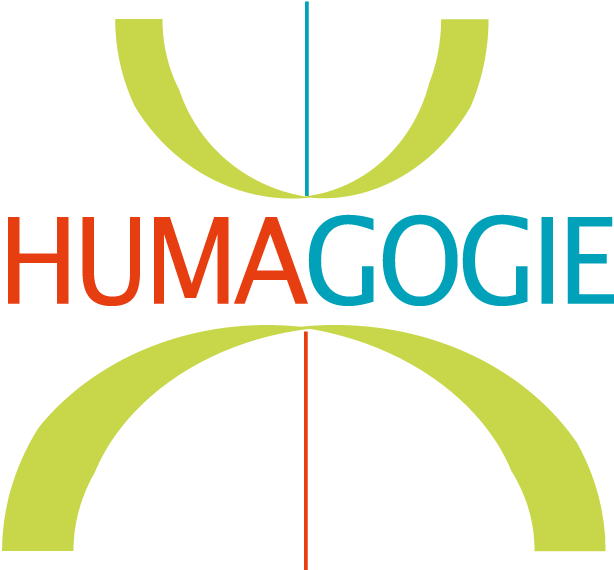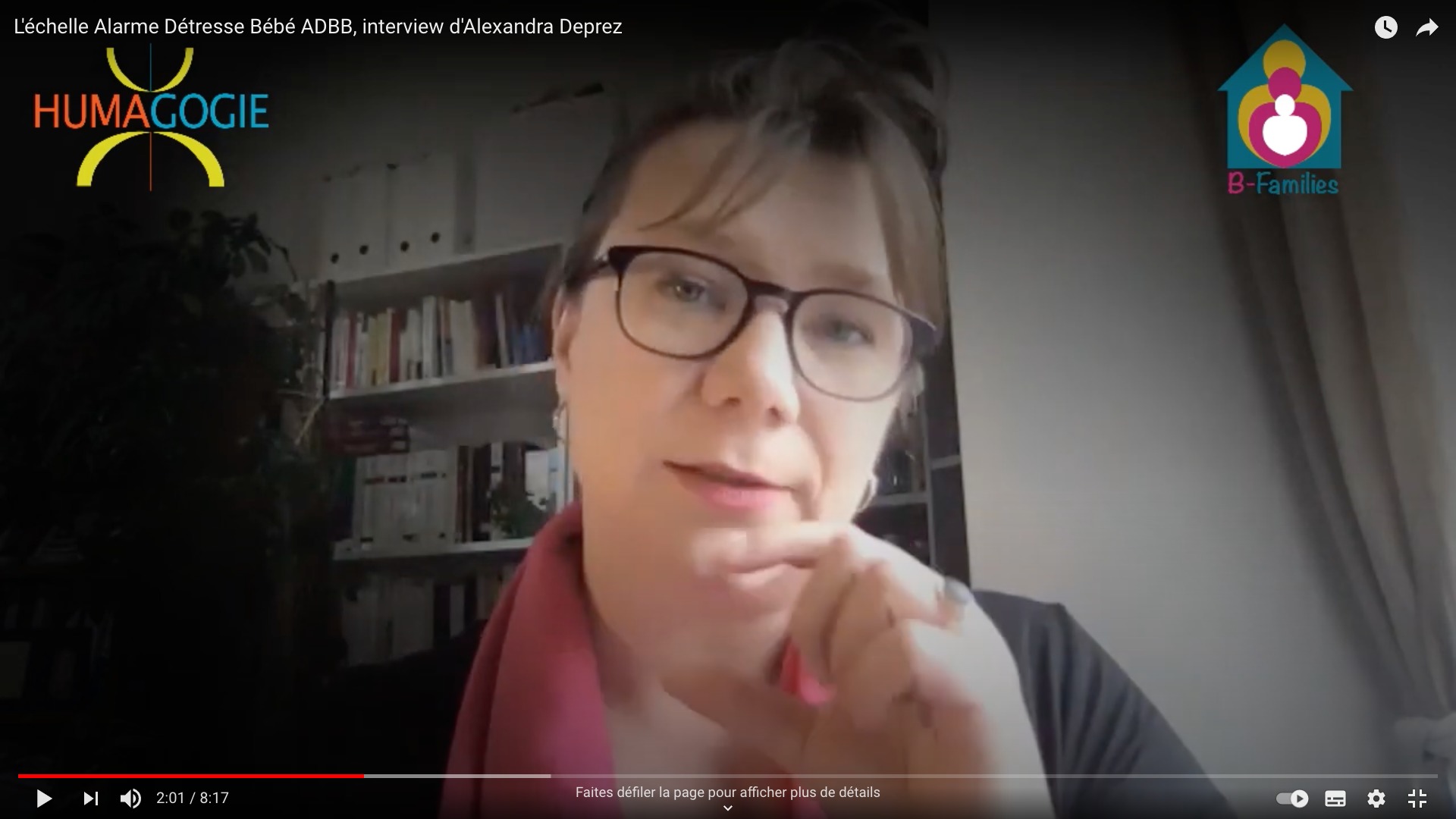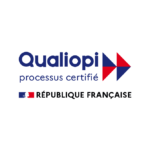Interested by the training in French ? Please consult : “Utiliser l’échelle Alarme Détresse Bébé (ADBB) Pour Évaluer Le Retrait Relationnel Du Bébé” or Formation niveau initiation : “Dépister la souffrance psychique des bébés entre 0-24 mois”
How can psychological distress in babies (0-24 months) be detected?
Why should you learn to detect relational withdrawal ?
Relational withdrawal is a major component of the infant’s response to the alteration in relationship that occurs during the still face experience or clinically during maternal depression. Relational withdrawal behavior is also one of the most stable behaviors during development, despite the major changes that occur in the first three years of life. Early relational withdrawal behavior is therefore an important warning signal. The baby’s defensive repertoire is in fact initially quite limited, and centers mainly around protest and withdrawal.
Withdrawal is more difficult to spot than protest, and yet it intervenes in numerous situations of early psychopathology, in an obvious or accessory way, whether it is a disorder caused initially by a relational disorder, or by an organic disorder, as in intense and lasting pain.
What is the ADBB (Alarm Distress Baby Scale) ?
The ADBB is a scale for assessing relational withdrawal in infants between 0 and 24 months of age, with 8 observation items. It is an observation aid validated by research. The short version of the ADBB is the M-ADBB in 5 items which allows a rapid screening of babies in psychological distress. The two scales complement each other to coordinate first-line screening, then assessment and finally follow-up under intervention.
The ADBB was developed by Pr. A. Guedeney (child psychiatrist, Hôpital Bichat Claude Bernard, AP/HP Paris).
The Alarm Ditresse Baby Scale (ADBB) is an observation aid for childcare professionals (pediatricians, child psychiatrists, psychologists, nursery nurses, social workers, educators, and now also nursery assistants, etc. ….). It is used in clinics (screening), for the evaluation of interventions and for research.
WHAT IS THE M-ADBB SCALE?
The M-ADBB scale is the shortened and validated version of the Alarm Distress baby Scale (ADBB), it allows for the early detection of babies who engage in relational withdrawal behaviour.
What will this training bring me ?
The introductory level provides an introduction to the concept of relational withdrawal in babies from 0 to 24 months. This training is aimed at frontline professionals and team leaders wishing to be made aware of this fundamental concept for the well-being of toddlers.
At the end of the training, participants will have a basic understanding of relational withdrawal, its links with risks for the baby’s development, and will be introduced to the assessment of this withdrawal using the M-ADBB scale (The M-ADBB Scale is the abbreviated and validated version of the Baby Distress Alarm Scale (ADBB)). It should be noted that this training does not provide complete competence in the assessment of relational withdrawal, but provides the fundamental knowledge necessary to become aware of and understand the origins and behavioral expression of the psychological suffering of babies between 0 and 24 months.
Complete training on the ADBB scale is required for any clinical use of these tools. This initiation can be continued with the in-depth training: “Using the ADBB scale to assess relational withdrawal in babies”.
What is the difference between the M-ADBB and ADBB scales?
The M-ADBB scale can be used to quickly identify whether or not a baby is in psychological distress; whereas the ADBB scale includes more items for assessing relational withdrawal, so it is more in-depth and can be used to detect and assess the severity and development of withdrawal under intervention.
Training for the M-ADBB scale lasts 6 hours and for the ADBB scale, 35 or 65 hours.
To find out more, visit: https://adbb-scale.com/faq-frequently-asked-questions/
LEARNING OBJECTIVES
At the end of the course you should be able to:
- Define relational withdrawal,
- Understand the links between relational withdrawal and developmental risk,
- Begin to observe the defensive behavior of the baby
- Discover the M-ADBB and ADBB scales
CONTENTS OF THE TRAINING
Can a baby suffer psychologically?
- Sources of stress for a baby
- The effects of stress on development
How to identify: The concept of relational withdrawal?
- Definition of relational withdrawal
- Breakups/separation
- Links between relational withdrawal and early psychopathologies
The ADBB & M-ADBB Scales
- The construction of the ADBB scale
- The M-ADBB scale: the assessment items
- What to do if a baby is screened with the M-ADBB
- Video training
TRAINING METHODS
2 training options are possible :
1- Self-training methods: approximately 6 hours (estimated learner time in autonomous, asynchronous mode). Access to content for 3 months. Registration possible at any time
The course is self-study, which means it is autonomous. It has been designed by educational engineers who are experts in e-learning. You will find videos, teaching resources and questionnaires to help you validate the skills you have acquired.
You will also have access to a forum where you are invited to participate. The trainer will regularly answer questions posted on this forum.
NB: This course is designed to raise awareness. If you would like to learn more, you will need to take the in-depth Baby Distress Alarm course (ADBB).
2- For a Team : 3-hour synchronous online webinar for 25 to 96 people. Content can be tailored to your needs. The recording can be made available for 10 days after the webinar, along with additional resources. Please contact us at least 30 days before the scheduled start date.
PEDAGOGICAL AND TECHNICAL SUPERVISORS
TRAINER : Alexandra Deprez

Doctor in psychology, specialist in attachment theory and perinatal psychopathology. I am trained in different tools for assessing attachment at different ages (CARE -Index, Strange Situation, Adult Attachment Interview.). Attachment theory is the framework on which I based my thesis research, which focused on the effect of parental visits on babies in care. It was during this experience that I became an expert in thinking about attachment and relationships in clinical practice. For the past 10 years, I have been working in my private practice, as a trainer or supervisor, to integrate attachment into the clinic and to allow the practical contributions of this theory to be widely disseminated in the field and among professionals.
ADMINISTRATIVE TUTOR and LEARNING COMMUNITY MANAGER: Jocelyne Guillon
Director of Humagogie, responsible for educational coordinationEducational engineer for E-training, Learning Community Manager (management and facilitation of learning communities) in the field of helping relationships. Expert in social networks and digital transformation of learning, she has worked for over 25 years with professionals in the medical-social and mental health sectors (public health department in Montreal, Health Canada, Integrated University Health and Social Services Center, psychotherapy and training center in France, CNFPT, EHPAD, etc.).
EVALUATING AND IMPROVING THE QUALITY OF TRAINING
The evaluations are used to collect your comments and suggestions for improvement. They are also passed on to the trainers.
The assessment procedure also enables us to determine whether the trainee has acquired the knowledge whose mastery constitutes the initial objective of the action.
Before : Pre-training questionnaire to assess participants’ expectations and initial training skills.
During: Recording of connection times on the platform, answers to questionnaires to monitor your integration of pedagogical content and exercises.
After the course: On-the-spot evaluations at the end of the course (satisfaction assessment and evaluation of skills acquired), followed by an on-the-spot evaluation by questionnaire sent by e-mail, 3 months after the end of the course.
MEANS OF MONITORING THE COURSE
For this self-directed e-learning course, learning activities are monitored throughout the course by logging on to the platform, carrying out teaching activities and completing exercises.
Self-study must be carried out in a linear fashion, i.e. in the given order. Once you have completed all the training (videos and questionnaires), the connection times are tracked and the answers to the questionnaires are used to certify that the training has been completed. This will enable you to obtain the course completion certificate. You can download and print it.
NB: For the webinar (in-house for teams), learning activities are tracked by recording attendance at the webinar.
ON-SITE TRAINING FOR SEVERAL TEAMS
- Association Pré-en-bulle, Belgique
- Cook Children Hospital, Etats-Unis
- REALISM, Belgique
- BRU-STARS, Belgique
- CIUSS de Québec
- Association du réseau Périnatal AURORE – Hôpital de la Croix Rousse, France
- Département du Nord, réseau des PMI
- IHV, Institute of Health Visiting, Royaume Uni
PRICE OF TRAINING
2 training options are possible :
- Access: 100% online for both
- Self-training methods: approximately 6 hours (estimated learner time in autonomous, asynchronous mode). Access to content for 3 months. Registration possible at any time. 240
- For a Team : 3-hour synchronous online webinar for 25 to 96 people. Content can be tailored to your needs. The recording is available for 10 days after the webinar, along with additional resources. Please contact us at least 30 days before the scheduled start date.
WHO CAN LEARN TO USE THE M-ADBB SCALE?
- Front-line professionals and team leaders wishing to be made aware of this fundamental concept for the well-being of toddlers:
- Psychologists, social workers, TISFs, doctors, paediatricians, psychomotor therapists, physiotherapists, nursery nurses, osteopaths, nursery workers, home visitors, etc.
- Number for the webinar : 10 to 96 people
Our training courses are accessible to people with disabilities, please notify us of your needs (one month before the course) in the contact form. If you meet the pre-requisites and the public concerned, we will adapt your welcome and teaching methods.
PREREQUISITES
- Knowledge of normal child development between 0 and 2 years of age
- Experience of working with families and babies aged 0 to 24 months
- Recommended equipment for access to this online training course: an internet connection, one computer/smartphone/tablet per person to interact and check attendance, access to the Zoom application (download it and test it beforehand to check that you are authorised to connect to professional computers).
DURATION AND METHODS
2 training options are possible :
- Access: 100% online for both
- Self-training methods: approximately 6 hours (estimated learner time in autonomous, asynchronous mode). Access to content for 3 months. Registration possible at any time
- For a Team : 3-hour synchronous online webinar for 25 to 96 people. Content can be tailored to your needs. The recording can be made available for 10 days after the webinar, along with additional resources. Please contact us at least 30 days before the scheduled start date.
QUALITY AND SATISFACTION
during the last training
94
98
86
41
”Well-targeted subject, theory and clear examples complemented each other perfectly. References to study authors were also very valuable.
PsychologistAnswer to the question, what are the strengths of the training?
”The clarity of the explanations, the surveys that allow you to participate and think for yourself, to see if you really understand. It's not drawn in length and it was very interesting. The videos help a lot to understand what was explained to us just before.
Pediatric nurseAnswer to the question, what are the strengths of the training?
”Very clear trainer, well structured training, great management of the computer tool, interactive
PsychologistAnswer to the question, what are the strengths of the training?
Self-training (individual tuition)Option recommandée
€ 150 TTC
per person (Individual rate)- 6 heures d’autoformation
- Accès à la formation pendant 2 mois
Pack administratif (devis, convention, certificat de réalisation de formation, facture) et processus certifié Qualiopi pour une prise en charge de votre formation par l’employeur ou votre organisme collecteur (FIF-PL, FAF…)
Self-training (employer-paid rate)
€ 240 TTC
per person (Institutional rate)- 6 heures d’autoformation
- Accès à la formation pendant 2 mois
- Pack administratif (devis, convention, certificat de réalisation de formation, facture) et processus certifié Qualiopi pour une prise en charge de votre formation par l’employeur ou votre organisme collecteur (FIF-PL, FAF…)
*Humagogie est non assujetti à la TVA, selon l’article 262 ter, I du CGI (formation continue des professionnels).
Last edition 18/10/2024



